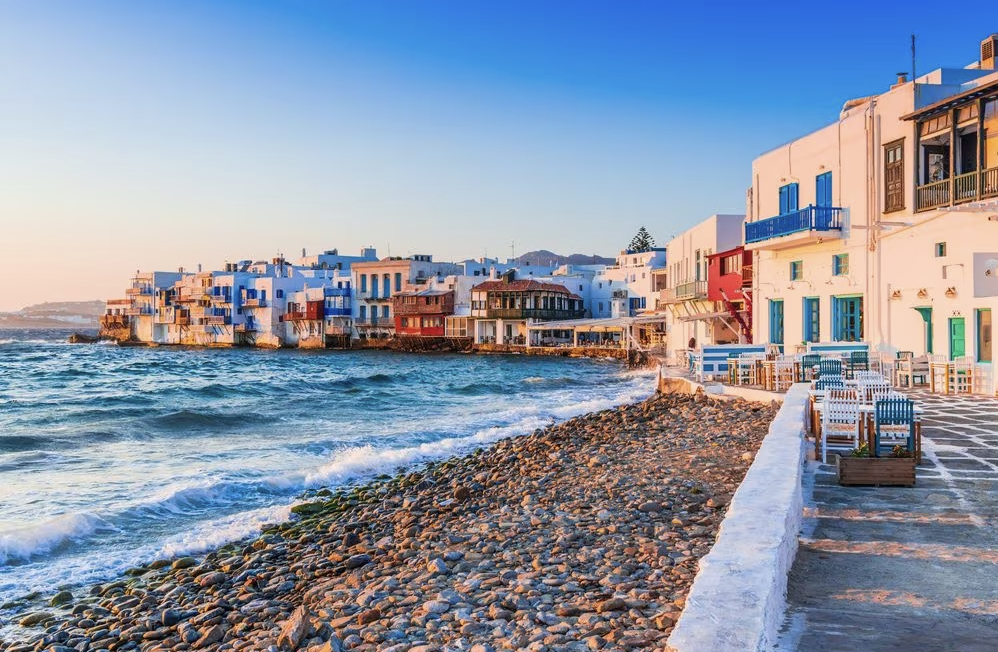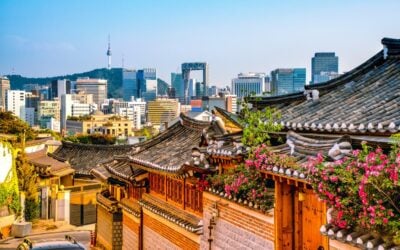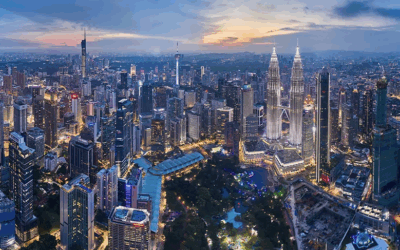Moving abroad used to be a privilege reserved for diplomats, corporate executives, and the independently wealthy.
Today, it’s become remarkably accessible for anyone with a bit of planning and the right guidance.
Indeed, whether you’re a digital nomad seeking sunshine and fast WiFi, a retiree chasing lower living costs or an entrepreneur looking for tax-friendly jurisdictions, there’s never been a better time to explore your options.
The world has opened up in ways that would’ve seemed impossible just a generation ago. Countries now compete for foreign talent and capital by opening streamlined immigration pathways.
This guide cuts through the noise to highlight the ten easiest countries to immigrate. We’ve selected destinations that offer clear pathways to residency, reasonable requirements, and genuine quality of life improvements.
You’ll find a mix of European sophistication, Asian affordability, and Caribbean efficiency – each with its own unique advantages.
Let’s explore what makes these countries stand out and help you figure out which one might be your perfect match.
What Makes a Country “Easy” to Immigrate?
Before we dive into specific countries, it’s worth understanding what we mean by “easy.”
After all, one person’s straightforward process might be another’s bureaucratic nightmare. Here are the key factors we’ve considered:
Clear and Accessible Visa Options
The best immigration destinations offer multiple pathways tailored to different situations. No such thing as a “one-size-fits-all” solution exists when it comes to immigration.
With that said, countries that provide transparent eligibility criteria and well-documented application processes make the journey significantly smoother.
Some nations have quota systems that limit annual immigration numbers, creating artificial scarcity and competition. Others maintain open policies with lower financial thresholds, making them accessible to a broader range of applicants.
We’ve prioritized countries that genuinely welcome foreigners rather than merely tolerating them.
Streamlined Application Processes
Nobody wants to spend months navigating confusing bureaucracy or making multiple in-person visits to embassies.
The easiest countries to immigrate to have embraced digital transformation, offering online applications, clear instructions, and reasonable processing times.
Look for countries with user-friendly systems that don’t require you to be a legal expert to understand. Bonus points if they offer English-language support and have established track records of actually approving applications in a timely manner.
Realistic Financial Requirements
While investment-based immigration programs exist at various price points, the most accessible countries balance their financial requirements with the value they offer.
A €250,000 real estate investment that grants EU residency might be reasonable; a €5 million minimum with no clear benefits probably isn’t.
Similarly, retirement and passive income visas should have income requirements that reflect actual living costs rather than arbitrary high barriers designed to exclude all but the wealthiest applicants.
Pathways to Permanent Residency and Citizenship
Temporary visas are fine for short-term stays, but most people want long-term security. The best immigration destinations provide clear roadmaps to permanent residency and eventual citizenship, including the possibility of dual citizenship.
Countries that require you to renew temporary permits indefinitely without ever offering permanence create ongoing uncertainty. We’ve focused on destinations where you can see a clear future, not just a temporary arrangement.
Quality of Life Considerations
There’s no point moving somewhere “easy” if you’ll be miserable once you arrive. We’ve considered factors like healthcare quality, safety, cost of living, climate, and the general welcoming attitude toward foreigners.
The best immigration destinations offer genuine lifestyle improvements, not just paperwork advantages. Whether that means better weather, lower taxes, superior healthcare, or simply a more relaxed pace of life depends on your priorities.
The 8 Easiest Countries to Immigrate
Now that we’ve established our criteria, let’s explore the ten countries that make immigration genuinely accessible.
We’ve included a mix of European, Asian, and Caribbean destinations to give you options across different regions, price points, and lifestyle preferences.
Malaysia
While everyone talks about Thailand and Bali, Malaysia quietly offers one of Asia’s best immigration programs through its Malaysia My Second Home (MM2H) scheme.

Malaysia’s MM2H visa program is one of the most straightforward immigration programs in all of Asia.
This long-term residency program has been welcoming foreigners since 2002, and despite recent requirement increases, it remains highly accessible.
The MM2H program allows foreigners to gain long-term residency with favorable tax benefits and a high standard of living.
Indeed, Malaysia’s territorial tax system means you won’t pay tax on foreign income unless you remit it into the country – a massive advantage for those with international income sources.
The country offers an exceptional quality of life at a fraction of Western costs. World-class healthcare is available at prices that would shock Americans – a doctor’s visit might cost $20, and private health insurance runs a few hundred dollars monthly.
English is widely spoken, making daily life easy for Western expats. The infrastructure is modern, with excellent internet connectivity perfect for remote workers.
Malaysia’s diversity is another major draw. You’ll find pristine beaches on islands like Langkawi and Penang, cosmopolitan cities like Kuala Lumpur with their gleaming skyscrapers, and lush highlands offering cooler climates.
It’s worth noting that Malaysia’s food scene is legendary, blending local, Chinese, Indian, and international cuisines.
The country is politically stable and safe, with low crime rates compared to many Western nations. The government actively encourages foreign residents, viewing them as contributors to the economy rather than burdens.
For Americans and other Westerners seeking an Asian base with minimal culture shock, Malaysia hits the sweet spot as one of the world’s easiest countries to immigrate.
Thailand
Thailand has long been a favorite among Western retirees and expats, and the country has formalized this relationship with several visa options designed specifically for long-term foreign residents.
The Long-Term Residence Visa for Wealthy Pensioners is Thailand’s premium option, offering extended stays for retirees who meet financial requirements.
The country also offers traditional retirement visas for those over 50 with pension income or savings, making it accessible across different wealth levels.
Thailand’s appeal is multifaceted. The cost of living is remarkably low – you can live comfortably on $1,500-$2,000 monthly in many areas, including rent, food, and entertainment.
Healthcare is excellent and affordable, with internationally accredited hospitals in Bangkok and major cities offering treatment at a fraction of Western costs.
The climate is tropical, with warm weather year-round (though the hot season can be intense). The beaches are world-famous, the food is incredible, and the Thai people are genuinely welcoming to foreigners.
Infrastructure is modern in urban areas, with excellent internet connectivity that’s made Thailand a digital nomad hub. You’ll find Western amenities readily available while still experiencing authentic Asian culture.
The visa process, while requiring some paperwork, is well-established and straightforward. Thailand has decades of experience hosting foreign retirees and has refined its systems accordingly.
Portugal
Portugal has become the poster child for accessible European immigration, and for good reason.
This sun-soaked country on Europe’s western edge offers multiple pathways to residency, each designed for different circumstances.
The D7 Passive Income Visa is perhaps Portugal’s most popular option for retirees and remote workers. With a minimum monthly income requirement of just €760 (roughly $820), it’s one of Europe’s most affordable residency programs.
The application process typically takes three months, and you’ll receive a two-year temporary residence permit that’s renewable for three more years. After five years of legal residency, you can apply for permanent residence or even Portuguese citizenship.
The Portugal Golden Visa requires a larger investment, €250,000 minimum, but offers incredible flexibility.
You only need to spend seven days per year in Portugal to maintain your residency, making it perfect for those who want European access without full-time relocation.
The program grants visa-free travel throughout the Schengen Area, and after five years, you can apply for citizenship.
The D8 Digital Nomad Visa caters specifically to remote workers and freelancers, offering flexible residency for those employed by companies outside Portugal.
It’s become wildly popular among the laptop lifestyle crowd who want European residency without giving up their existing careers.
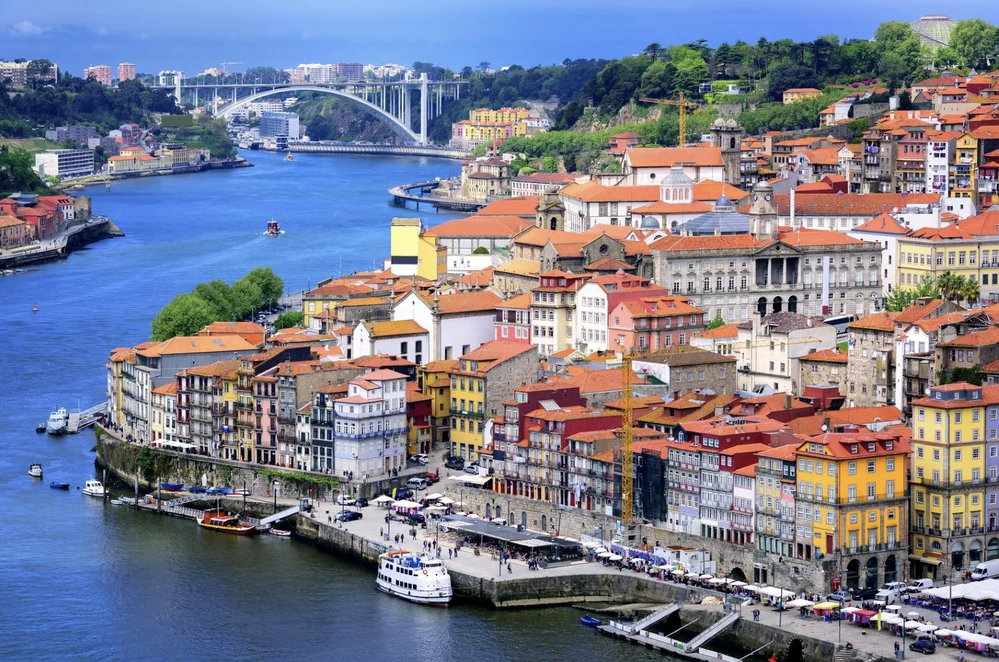
Portugal offers several options for residency, and with its relative affordable cost of living, it’s one of the top destinations for those seeking a new country to call home.
Recently, Portugal’s parliament voted to increase number of years of residency required for citizenship from five years to ten though. Worse yet, this rule extends to those who already have a Golden Visa!
Many are describing the act as a “complete rug-pull” by not grandfathering in current visa holders. Thus, the future for investment migration in Portugal seems uncertain.
The Philippines
The Philippines stands out in Asia for one simple reason: English is an official language. For Americans and other native English speakers, this eliminates one of the biggest barriers to immigration – the language learning curve.
The Special Resident Retirement Visa (SRRV) is available for foreigners aged 50 and above, with relatively low financial requirements compared to similar programs elsewhere. The process is straightforward, and the Philippines actively encourages foreign retirees as contributors to the economy.
The cost of living in the Philippines is among the lowest in Asia. You can live very comfortably on $1,000-$1,500 monthly, including rent in a nice area, food, utilities, and entertainment.
The Philippines offers incredible natural beauty – over 7,000 islands with pristine beaches, world-class diving, and lush mountain landscapes. The climate is tropical, warm year-round with a rainy season that varies by region.
Filipino culture is unique in Asia, blending indigenous traditions with Spanish colonial influences and American cultural elements. The result is a society that feels more familiar to Westerners than many Asian countries while still offering exotic appeal.
The people are famously friendly and welcoming. The Philippines has a long history of American presence. You’ll find established expat communities in areas like Manila, Cebu, and Davao.
Infrastructure does vary – major cities have modern amenities and good internet, while rural areas can be more basic. However, this also means you can choose your preferred level of development and cost.
The visa process is relatively simple, and the government has made efforts to streamline procedures for foreign retirees. While bureaucracy can sometimes be slow, the overall process is manageable, especially with local assistance.
United Arab Emirates
The UAE has transformed itself into a global business hub and lifestyle destination, and its immigration policies reflect this ambition.
While not the cheapest option on our list, the UAE offers unique advantages that make it worth considering – it’s definitely one of the world’s easiest countries to immigrate.
The country recently introduced a 9% corporate income tax, ending its zero-tax status, but there’s still no personal income tax – a massive advantage for high earners.
Some free zone companies may still enjoy tax exemptions under the new rules, making the UAE competitive for entrepreneurs and business owners.
Residency options include investor visas, employment-based visas, and retirement programs. The requirements vary, but the UAE has made efforts to attract foreign talent and capital through streamlined processes.
The lifestyle in the UAE is undeniably luxurious. Dubai and Abu Dhabi offer world-class infrastructure, from the iconic Burj Khalifa to pristine beaches and championship golf courses maintained despite the desert climate.
The UAE is exceptionally safe with low crime rates, and the government maintains this through strict law enforcement. The country is clean, modern, and efficient. Healthcare is excellent, though private insurance is typically required.
The climate is hot – brutally so in summer – but most buildings are air-conditioned to arctic levels. You’ll experience plenty of sunshine and virtually no rain, though sandstorms are an occasional reality.
The UAE’s population is roughly 88% foreign, creating a truly international environment. English is widely spoken, and you’ll find expat communities from every corner of the globe.
Cultural considerations are important here- the UAE maintains strict laws regarding public behavior, dress codes in certain areas, and social issues. However, the government is modernizing and becoming more accommodating to changing attitudes.
Banking in the UAE is sophisticated, with both local powerhouses and international banks operating there. The country’s strategic location makes it perfect for business between East and West.
For high-net-worth individuals seeking a tax-efficient base with luxury amenities and global connectivity, the UAE offers compelling advantages despite higher costs than other Asian destinations.
Turkey
Turkey occupies a unique position straddling two continents, offering investors and immigrants a literal bridge between Europe and Asia.
While it’s not without its challenges, the country’s citizenship-by-investment program remains one of the easiest places to get a second passport.
The Turkey Citizenship by Investment program requires a minimum investment of $400,000, which can take several forms: purchasing real estate, making a bank deposit, or starting a business that creates jobs for Turkish citizens.
This program provides a streamlined route to both permanent residency and citizenship, making it one of the more straightforward paths to an additional passport.
Turkey allows foreigners to own land, condos, and other types of real estate without the restrictions you’ll find in many Asian countries.
With property prices hovering around just $2,000 per square meter in Istanbul, the real estate market appears remarkably affordable compared to other major cities.
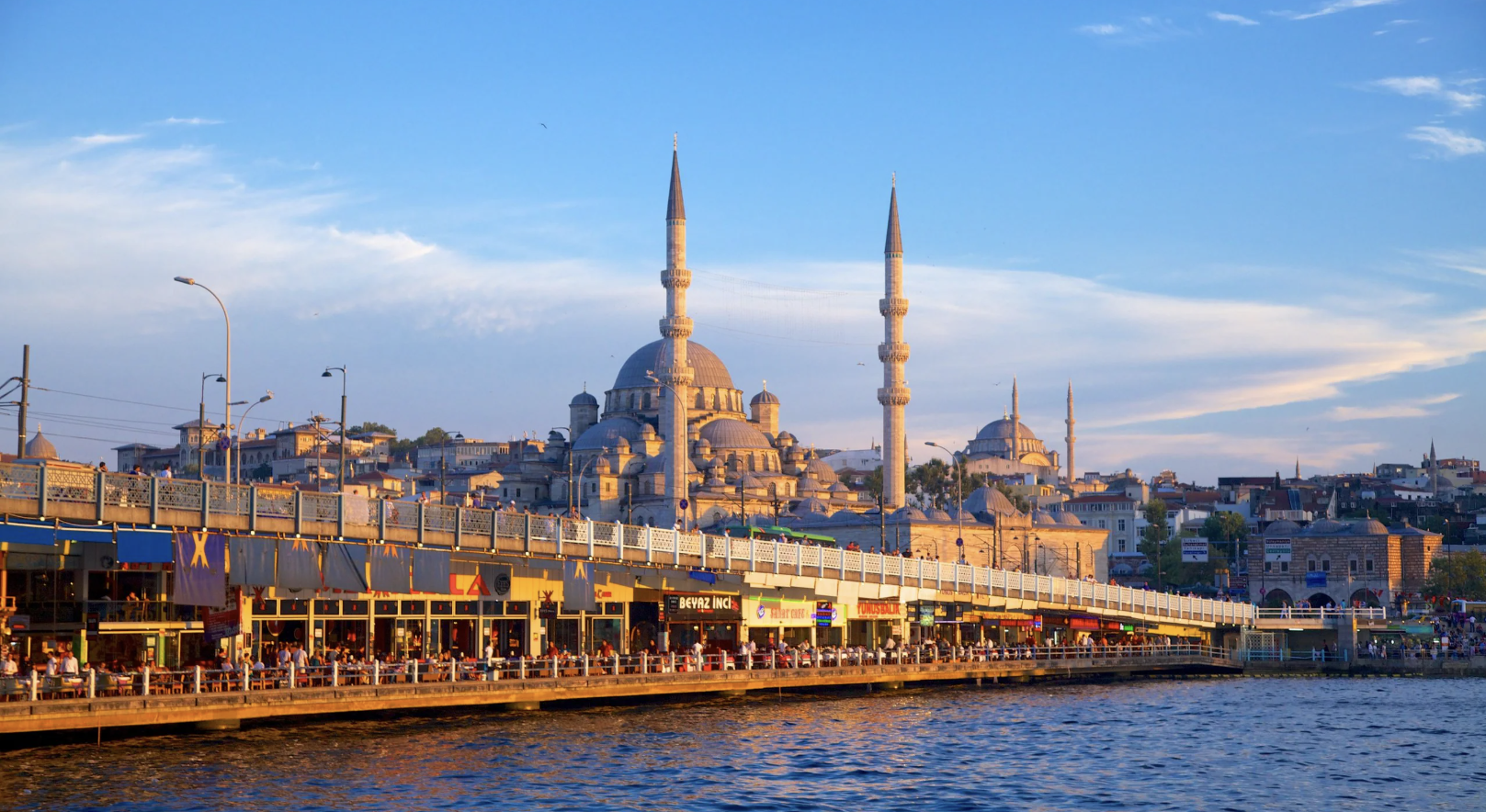
Turkey’s property ownership law allows foreigners to own almost any type of property in the country on a freehold basis.
This low entry point has attracted considerable foreign investment, particularly from those seeking the citizenship benefits that come with buying property in Turkey.
The country’s strategic location makes it an ideal regional business hub, connecting markets in Europe, Asia, and the Middle East. Turkey ranks highly on the human development index and is certainly not a “third world country” by any means.
Major cities like Istanbul, Ankara, and Izmir offer modern infrastructure and cosmopolitan lifestyles.
However – and this is important – Turkey comes with significant economic considerations that potential immigrants need to understand. The Turkish lira has been in free-fall for years, with no clear end in sight to the currency’s ongoing depreciation.
When you buy real estate in any country, you’re not just investing in a physical structure; you’re also making a bet on that nation’s currency. Right now, the lira isn’t exactly a safe wager.
Turkey’s corporate debt levels exceed 70% of GDP, with much of this debt denominated in US dollars rather than lira. As the lira depreciates, the amount needed to service this debt increases, creating a concerning economic cycle.
Indeed, the currency has experienced dramatic devaluation, which affects everything from purchasing power to investment returns.
Political considerations also factor into the equation. The country’s leadership has consolidated power over recent years, and economic policy decisions haven’t always followed conventional wisdom.
While Turkey maintains legal legitimacy in its governance, the concentration of political power creates uncertainties that investors should consider.
That said, getting Turkish citizenship remains a solid choice if you’re looking to get a second citizenship – as long as optimal investment is not a big deal to you.
The citizenship program itself is legitimate and well-established, offering genuine travel benefits and a recognized passport. It’s truly one of the world’s easiest places to become a citizen.
For those specifically seeking a second passport and who understand the economic risks involved, Turkey provides a relatively accessible pathway. The $400,000 investment threshold is lower than many European Golden Visa programs.
However, potential immigrants should approach with eyes wide open. The economic challenges are real and ongoing. Turkey works best for investors who view the citizenship as the primary benefit and who don’t expect significant returns from their investment.
Greece
Greece’s Golden Visa program has become one of Europe’s most popular investment immigration schemes, and it’s easy to see why.
For a €250,000 property investment (though this is increasing to €400,000 in popular areas), you can obtain a renewable permanent residence visa that’s typically approved within six to eight weeks.
The speed and simplicity of Greece’s program stand out. Unlike some Golden Visa schemes that require extensive documentation and months of processing, Greece has streamlined the process considerably.
You don’t need to live in Greece full-time to maintain your residency – there’s no minimum stay requirement, making it perfect for those who want European access without full relocation.
The tax benefits are particularly attractive. Golden Visa holders can pay a flat annual fee instead of global income tax, significantly reducing tax burdens for high earners with international income.
Beyond the visa mechanics, Greece offers an enviable lifestyle. The Mediterranean climate delivers warm, dry summers and mild winters.
The cost of living remains reasonable, especially outside Athens and major tourist islands. Fresh food is abundant and affordable, healthcare is good quality, and the pace of life is refreshingly relaxed.
Greece ranks highly for American retirees specifically, combining beautiful weather, safety, and acceptance of migrants with accessible immigration pathways.
St. Kitts and Nevis
If you’re looking for actual citizenship rather than just residency, St. Kitts and Nevis offers one of the world’s oldest and most respected citizenship-by-investment programs. Established back in 1984, it’s had decades to refine its processes and build its reputation.
The program requires either a $250,000 donation to the Sustainable Growth Fund or a $400,000 real estate investment. The process typically takes about 12 months from application to passport, which is remarkably fast for acquiring a second citizenship.
The benefits are substantial. St. Kitts and Nevis citizenship provides visa-free travel to over 160 countries, including the EU and UK. There’s no personal income tax, no capital gains tax, and no inheritance tax which makes it attractive for wealth preservation.
The islands themselves are beautiful, with pristine beaches, lush rainforests, and a relaxed Caribbean lifestyle. The climate is tropical perfection – warm year-round with trade winds providing natural air conditioning.
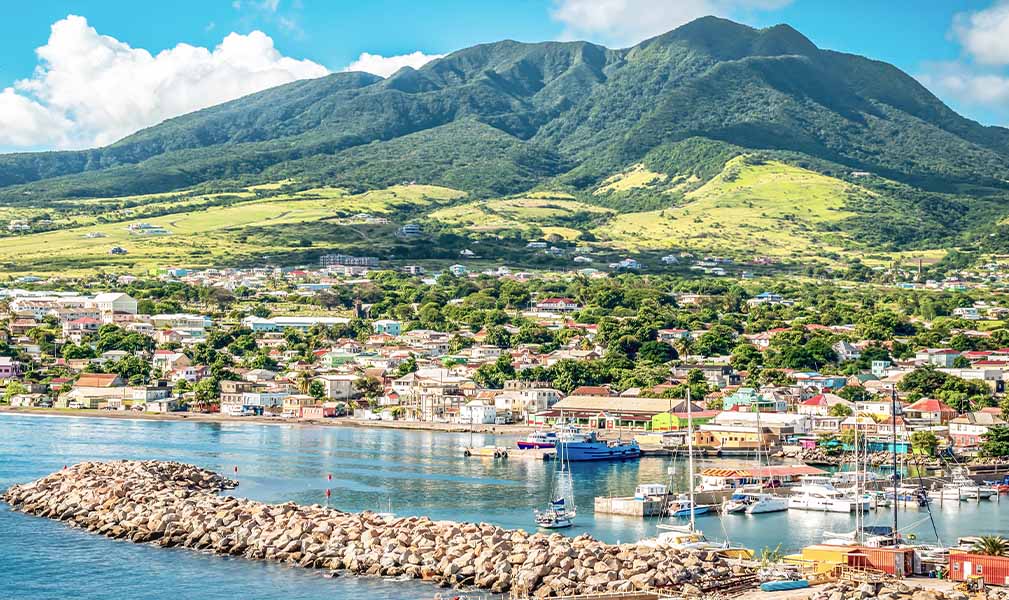
St. Kitts and Nevis offers a very powerful passport to its citizens, and includes visa-free travel to the EU.
The population is small (around 55,000), creating an intimate, community-oriented atmosphere. English is the official language, and the country uses the Eastern Caribbean dollar (though US dollars are widely accepted).
While St. Kitts and Nevis is small and lacks the infrastructure of larger nations, it offers something unique: a legitimate second passport from a stable, respected jurisdiction. For those concerned about geopolitical risk, having a backup citizenship gives peace of mind.
The country is politically stable with a functioning democracy and British-influenced legal system. It’s safe, with low crime rates compared to some Caribbean neighbors.
Real estate options range from beachfront condos to hillside villas, with the investment requirement ensuring quality developments. Many investors rent out their properties when not using them, generating income to offset costs.
For high-net-worth individuals seeking a second passport with tax benefits and travel freedom, St. Kitts and Nevis offers a proven, efficient pathway. It’s certainly one of the easiest countries to immigrate.
Vietnam
Vietnam rounds out our list as an emerging destination that’s becoming increasingly popular with expats, despite not having a specific retirement visa.
While Vietnam lacks dedicated retirement or investment visa programs, it offers various visa options including business visas and temporary residence permits that can be extended.
What Vietnam lacks in formal immigration programs, it makes up for in lifestyle appeal and affordability. The cost of living is exceptionally low – you can live very comfortably on $1,000-$1,500 monthly, including rent in a nice area, food, and entertainment.
Cities like Ho Chi Minh City and Hanoi offer modern amenities at a fraction of Western costs. Meanwhile, The food scene is legendary. Vietnamese cuisine is considered one of the world’s best, and you’ll find incredible meals for just a few dollars.
The Vietnamese people are generally welcoming to foreigners, and the country has a growing expat community, particularly in Ho Chi Minh City, Hanoi, and Da Nang. English is increasingly spoken, especially among younger Vietnamese and in expat areas.
Infrastructure is rapidly improving. Internet connectivity is good in cities, making Vietnam viable for remote workers. Healthcare is developing, with quality hospitals available in major cities, though serious medical issues may require travel to Thailand/ Singapore.
Vietnam’s economy is one of Asia’s fastest-growing, creating opportunities and ensuring ongoing development. The country is politically stable and safe, with low violent crime rates.
The visa situation requires more attention than countries with formal programs – you’ll need to stay on top of renewals and potentially use visa runs to maintain legal status. However, many expats and retirees in Vietnam have successfully navigated this for years.

